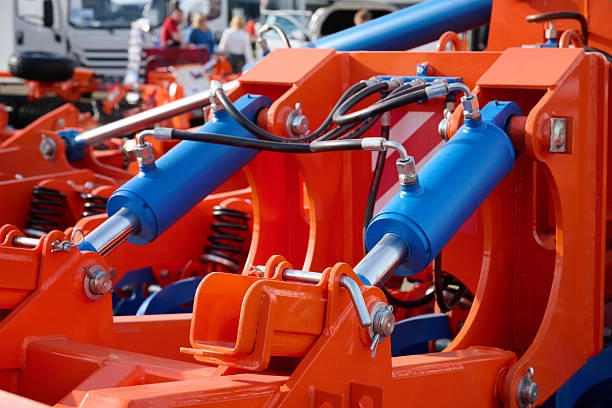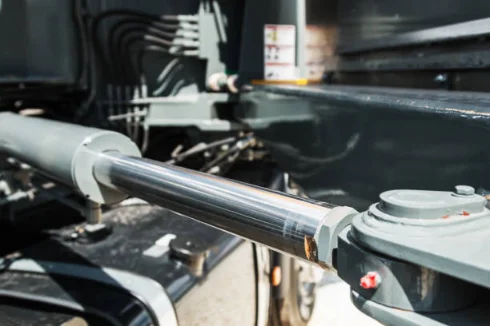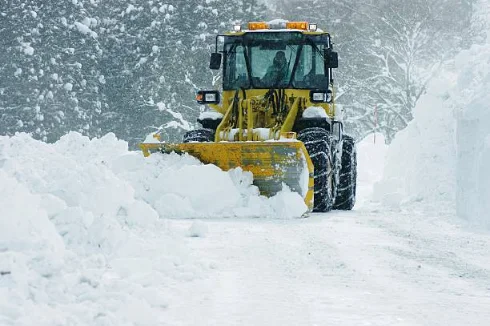Applications involving hydraulic cylinders are found in the operation of heavy machinery in construction, agriculture, and transport. Given this important function, there is great need for hydraulic cylinder longevity to sustain smooth operations with no expensive downtime.
With good maintenance practices, proper component selection, and following best practices for hydraulic operation, businesses could minimize hydraulic cylinder failure rates and ensure high machinery performance, hence helping to reduce replacement or repair costs associated with hydraulic components.
Understanding Hydraulic Cylinders and Their Importance
Hydraulic cylinders basically convert hydraulic energy into mechanical motion. Such mechanical motion is highly essential in aspects of functionality, starting from agricultural machinery to construction equipment. In its operating detail, these cylinders make use of regulated flow and pressure of hydraulic fluid via internal chambers that can be allowed to do varied functions like lift, push, or tilt.
Examples of their uses include hydraulic cylinders in farm machinery to vary the width of the plow in operation or to compress harvested forage into bales using round balers. Thus, a hydraulic cylinder for round balers is manufactured from high-strength materials that can handle the heavy loads and harsh conditions in the field environment.
Why Hydraulic Cylinder Longevity is Important
The efficiency and productivity of machinery powered by hydraulic cylinders stem directly from their service life. Failures of hydraulic cylinders in plows or round balers because of poor maintenance happen anytime, which, again, might be costly to repair or replace. This would take so much time from operational workflow to business profitability. An estimate by Hydraulic Institute shows that hydraulic system failure leading to equipment downtime can cost companies up to $100,000 per year in terms of lost productivity and repair costs.
In view of these blooper costs that may arise, one has to go for regular maintenance and observe with due care the way hydraulic cylinders are being operated. Now, specific considerations to extend the life of your hydraulic cylinders in your agricultural and industrial uses are discussed.
Strategies for Hydraulic Cylinders Longevity
1. Routine Maintenance and Inspection
Good routine maintenance and inspection are the first steps in prolonging the life of hydraulic cylinders. A hydraulic cylinder usually operates under extreme conditions of temperatures, variations in pressures, and even contaminants. All these conditions can degrade cylinder components, causing leakages, corrosion, and hence failure. A schedule of routine inspections is to be implemented.Inspection shall consist of:
- Seal and gasket checking:All seals shall be intact and without wear and tear marks; a worn-out seal would provide, with time, leakage paths that would surely cause hydraulic pressure loss.
- Fluids levels/quality:hydraulic fluid should be up to the recommended levels. It is supposed to be clean, not contaminated.
- Alignment and mounting of the cylinder: The cylinder must be properly aligned and mounted in order not to have excessive wear and stress on the parts
For instance, Shining Hydraulics equips its hydraulic cylinders for round balers with advanced sealing systems using imported brands boasting of high-speed wear resistance and long service life. Regular maintenance of these systems will ensure that these advanced seals maintain their integrity, which is important to maximize the service life of the cylinder.
2. Use High-Quality Hydraulic Fluid
The quality of hydraulic fluid will determine the durability of hydraulic cylinders. Hydraulic fluid is the life of a hydraulic system because it powers the cylinder and, at the same time, lubricates moving parts in the process. Low quality or contaminated hydraulic fluid results in increased friction, overheating, and accelerated wear. In contrast, when too little hydraulic fluid is available, it leads to drastically poor performance, hence failure of the hydraulic system.
Shining Hydraulics goes a step further in using the finest qualities of hydraulic fluids that best fit the operating conditions of machinery. High pressure is normally experienced during the tilting and lifting of plows within hydraulic cylinders. For this reason, selecting appropriate fluid capable of supporting very extreme pressures without deterioration becomes of prime importance. This involves periodical changing of fluids so that impurities ingested within the system during operation could be washed off.
3. Operate Under Monitoring Conditions
The operating requirements of the machine that is applying the hydraulic, along with the operating condition, are extremely important in understanding the needs for protecting the hydraulic cylinders. For example, round balers used on agricultural machinery will operate under high-pressure conditions with high impacts. These units have frequent rapid, repetitive cycles that stress a hydraulic system.
Failure of hydraulic system components, including the hydraulic cylinder, may be brought about by a sudden increase in pressure. Overloading brings excessive stress on seals, cylinders, and valves. The hydraulic cylinder shall be subjected to a pressure limit recommended by the company through product manuals or Shining Hydraulics technical specifications. When the hydraulic cylinder is overloaded, the seals degrade faster, hence increasing the need for frequent repairs.
4. Protect from Contamination
The leading causes of hydraulic cylinder failure are due to contaminants like dirt, dust, and water. Contaminants can enter through seals or any other damaged parts, causing internal damage, clogging, and wear of critical components. Contaminated hydraulic fluid can also erode the internal surfaces of the cylinder, which in turn reduces its performance and leads to failure.
5. Proper Cylinder Storage
Storage of hydraulic cylinders out of service is just as important as routine maintenance. Store cylinders so that they will not be subjected to extreme temperatures, excessive moisture, or direct sunlight. If possible, store the cylinders in a dry, climate-controlled environment to protect the seals and prevent the fluid from breaking down over time.
For hydraulic cylinders used in farm applications-for example, those used for plows or round balers-make sure that they are stored properly out of season to protect against environmental elements like freezing temperatures, which can also make the seals brittle and even crack.
Why Choose Shining Hydraulics for Your Hydraulic Cylinder Needs?
Shining Hydraulics hydraulic cylinders boast the highest level of performance, good reliability, and durability. Focused on innovation and quality, Shining Hydraulics designs and produces hydraulic cylinders specifically for application pertaining to plows and round balers regarding farm machinery. The cylinders from Shining Hydraulics have a modern sealing system, high tensile tubing, and anti-corrosion coatings, all justifications for its longer service life and higher efficiency in operation.
For instance, hydraulic cylinders for round balers boast forged connection parts and high-strength electroplated piston rods to enable them to deal with the harshest of working conditions. Also, it gives comprehensive after-sales service whereby customers are ensured of required support in the life cycle of their products.
Conclusion.
From manufacturers such as Shining Hydraulics, which supplies the best hydraulic cylinders for all types of agricultural machinery-from plows to round balers-to help in your business and reliably invest in decreasing downtime while improving productivity, you will also save long-term on maintenance costs. Follow these tips and give care and maintenance the importance it deserves; with that, hydraulic cylinders will return the favor of serving you efficiently to save you not only time but money as well.




